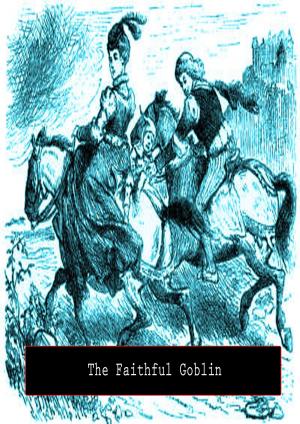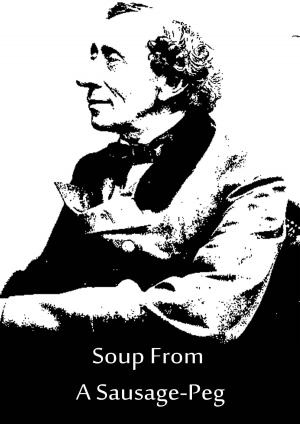| Author: | Edward Hyde | ISBN: | 1230000034847 |
| Publisher: | Zhingoora Books | Publication: | December 1, 2012 |
| Imprint: | Language: | English |
| Author: | Edward Hyde |
| ISBN: | 1230000034847 |
| Publisher: | Zhingoora Books |
| Publication: | December 1, 2012 |
| Imprint: | |
| Language: | English |
Christmas Summary Classics
This series contains summary of Classic books such as Emma, Arne, Arabian Nights, Pride and prejudice, Tower of London, Wealth of Nations etc. Each book is specially crafted after reading complete book in less than 30 pages. One who wants to get joy of book reading especially in very less time can go for it.
EDWARD HYDE
The History of the Rebellion
Edward Hyde, Earl of Clarendon, who was born February 18, 1608; at Dinton, Wilts, and who died at Rouen, 1674, was son of a private gentleman and was educated at Oxford, afterwards studying law under Chief Justice Nicholas Hyde, his uncle. Early in his career he became distinguished in political life in a stormy period, for, as a prominent member of the Long Parliament, he espoused the popular cause. The outbreak of the Civil War, however, threw his sympathies over to the other side, and in 1642 King Charles knighted him and appointed him Chancellor of the Exchequer. When Charles, Prince of Wales, afterwards King Charles II., fled to Jersey after the great defeat of his father at Naseby, he was accompanied by Hyde, who, in the island, commenced his great work, "The History of the Rebellion," and also issued a series of eloquently worded papers which appeared in the king's name as replies to the manifestoes of Parliament. After the Restoration he was appointed High Chancellor of England and ennobled with the title of Earl of Clarendon. But the ill success of the war with Holland brought the earl into popular disfavour, and his unpopularity was increased by the sale of Dunkirk to the French. Court intrigues led to the loss of his offices and he retreated to Calais. An apology which he sent to the Lords was ordered to be burnt by the common hangman. For six years, till his death in Rouen, he lived in exile, but he was honoured by burial in Westminster Abbey. His private character in a dissolute age was unimpeachable. Anne Hyde, daughter of the earl, became Queen of England, as wife of James II., and was mother of two queens, Anne and Mary. The "History of the Rebellion" is a noble and monumental work, invaluable as written by a contemporary.
King James, in the end of March, 1625, died, leaving his majesty that now is, engaged in a war with Spain, but unprovided with money to manage it, though it was undertaken by the consent and advice of Parliament; the people being naturally enough inclined to the war (having surfeited with the uninterrupted pleasures and plenty of 22 years of peace) and sufficiently inflamed against the Spaniard, but quickly weary of the charge of it. Therefore, after an unprosperous attempt by sea on Cadiz, and a still more unsuccessful one on France, at the Isle of Rhé (for some difference had also begotten a war with that country), a general peace was shortly concluded with both kingdoms.
Christmas Summary Classics
This series contains summary of Classic books such as Emma, Arne, Arabian Nights, Pride and prejudice, Tower of London, Wealth of Nations etc. Each book is specially crafted after reading complete book in less than 30 pages. One who wants to get joy of book reading especially in very less time can go for it.
EDWARD HYDE
The History of the Rebellion
Edward Hyde, Earl of Clarendon, who was born February 18, 1608; at Dinton, Wilts, and who died at Rouen, 1674, was son of a private gentleman and was educated at Oxford, afterwards studying law under Chief Justice Nicholas Hyde, his uncle. Early in his career he became distinguished in political life in a stormy period, for, as a prominent member of the Long Parliament, he espoused the popular cause. The outbreak of the Civil War, however, threw his sympathies over to the other side, and in 1642 King Charles knighted him and appointed him Chancellor of the Exchequer. When Charles, Prince of Wales, afterwards King Charles II., fled to Jersey after the great defeat of his father at Naseby, he was accompanied by Hyde, who, in the island, commenced his great work, "The History of the Rebellion," and also issued a series of eloquently worded papers which appeared in the king's name as replies to the manifestoes of Parliament. After the Restoration he was appointed High Chancellor of England and ennobled with the title of Earl of Clarendon. But the ill success of the war with Holland brought the earl into popular disfavour, and his unpopularity was increased by the sale of Dunkirk to the French. Court intrigues led to the loss of his offices and he retreated to Calais. An apology which he sent to the Lords was ordered to be burnt by the common hangman. For six years, till his death in Rouen, he lived in exile, but he was honoured by burial in Westminster Abbey. His private character in a dissolute age was unimpeachable. Anne Hyde, daughter of the earl, became Queen of England, as wife of James II., and was mother of two queens, Anne and Mary. The "History of the Rebellion" is a noble and monumental work, invaluable as written by a contemporary.
King James, in the end of March, 1625, died, leaving his majesty that now is, engaged in a war with Spain, but unprovided with money to manage it, though it was undertaken by the consent and advice of Parliament; the people being naturally enough inclined to the war (having surfeited with the uninterrupted pleasures and plenty of 22 years of peace) and sufficiently inflamed against the Spaniard, but quickly weary of the charge of it. Therefore, after an unprosperous attempt by sea on Cadiz, and a still more unsuccessful one on France, at the Isle of Rhé (for some difference had also begotten a war with that country), a general peace was shortly concluded with both kingdoms.
![Cover of the book The History of Rebellion [Christmas Summary Classics] by Edward Hyde, Zhingoora Books](https://www.kuoky.com/images/2012/december/500x500/1230000034847-nuPJ_500x.jpg)



![Cover of the book Principia [Christmas Summary Classics] by Edward Hyde](https://www.kuoky.com/images/2012/december/300x300/1230000036273-aMG5_300x.jpg)


![Cover of the book Principles Of Sociology [Christmas Summary Classics] by Edward Hyde](https://www.kuoky.com/images/2012/november/300x300/1230000032309-INk5_300x.jpg)
![Cover of the book Principles of Human Knowledge [Christmas Summary Classics] by Edward Hyde](https://www.kuoky.com/images/2012/december/300x300/1230000036236-1Qmn_300x.jpg)

![Cover of the book KenilWorth [Christmas Summary Classics] by Edward Hyde](https://www.kuoky.com/images/2012/december/300x300/1230000036860-Hxad_300x.jpg)




